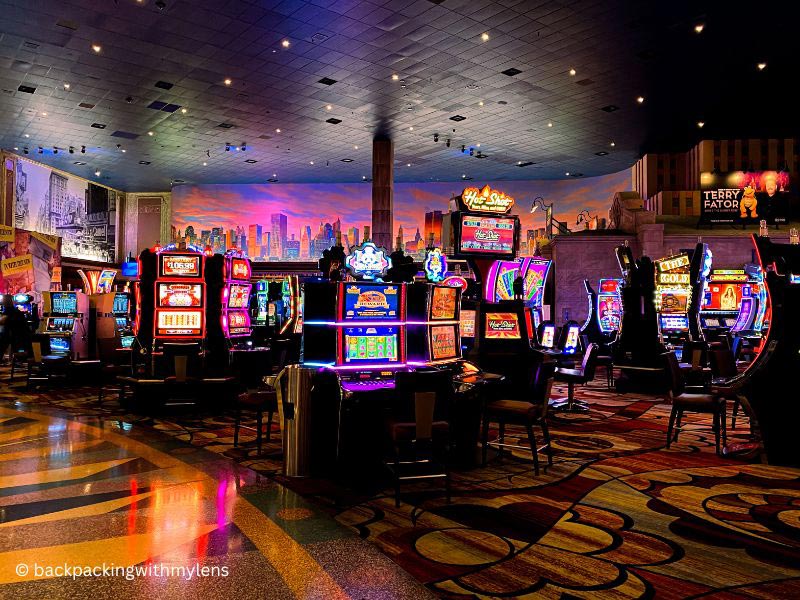
Behind the shimmering lights plus those alluring sounds of spinning reels lies a dynamic world where innovation meets numbers: the creation of games of chance. As players flock to casinos seeking excitement plus the possibility of striking it rich big, a huge amount of work takes form behind the scenes to create these games they enjoy. From the starting concept to the final product that players interact with, numerous elements are brought together to ensure a captivating gaming experience.
Creators, technicians, plus game creators collaborate to merge innovative technology with enthralling gameplay mechanics. Each aspect, from visuals plus audio elements to probabilities plus payouts, is carefully designed to draw in players and keep them entertained. Understanding this complex process of how casino games are made reveals both the technical expertise involved but also the creative vision that brings these engaging experiences to life.
Game Design Process
The game process starts with brainstorming and concept development, where creators generate ideas for new casino games. This initial phase typically includes identifying potential audiences and analyzing market trends. Designers take into account elements like game mechanics, themes, and payout structures to create an immersive experience. Collaboration between game designers, mathematicians, and artists is crucial to ensure a balanced concept.
Once a concept is chosen, the next stage entails prototyping and testing. Designers build a functional version of the game to evaluate its playability and mechanics. This facilitates adjustments and refinements based on feedback from testers. Iteration is vital, as designers may navigate multiple rounds of testing to fine-tune gameplay balance and user experience. This stage is essential for spotting any possible issues before the game is finalized.
After testing, the game moves into the development phase and production. This includes the technical aspects of coding the game software, integrating graphics, and making sure compliance with gaming regulations. Quality assurance testing ensures that the game functions seamlessly across various platforms and devices. Once everything is refined, the game is prepared for launch, usually accompanied by marketing strategies to draw in players and generate excitement around the new casino offering.
Technology and Advancement
The development of gambling games has evolved significantly with advancements in technology. Contemporary game design often features premium graphics, captivating sound effects, and engaging animations that deliver a captivating experience for gamers. Game developers use advanced software tools and programming languages to create these interactive gaming experiences. Additionally, the use of RNGs ensures fairness and unpredictability in outcomes, which is crucial for maintaining player trust and compliance with gaming regulations.
In recent years, the surge of online casinos has pushed the limits of game development even further. Developers are now able to design games that cater to a worldwide audience, incorporating features such as live dealers and virtual reality environments. This transition has encouraged innovation, leading to unique game mechanics and formats that enhance player engagement. Mobile gaming has also become a significant focus, driving developers to optimize games for smartphones and tablets, ensuring availability and ease of access for players on the go.
Collaboration among designers, visual artists, and math experts is essential in the development process. Each team brings their expertise to ensure games are not only aesthetically pleasing but also statistically accurate and enjoyable. The integration of player feedback during testing phases allows developers to refine game features and functionalities, ultimately leading to a positive launch. As technology continues to advance, the potential for new game concepts and experiences is endless, promising an thrilling future for casino games.
Testing and Quality Control
Once a slot has been developed, it moves into the essential phase of evaluation and quality control. This phase ensures that the game operates flawlessly and provides a fair experience for players. Teams conduct comprehensive tests, including operational checks to confirm that all game features work as intended. Each component, from graphics to sound effects, is assessed to ensure high standards are met. đá gà trực tuyến
In addition to operational testing, the game experiences rigorous compliance checks to meet compliance requirements. Different jurisdictions have specific rules governing game fairness and player protection. Quality assurance teams will confirm that the random number generators are operating correctly and that the game’s payout percentages correspond with market standards. This thorough examination helps establish trust with users and regulators alike.
Finally, pre-launch testing may be conducted with actual users to gather insights on user experience. This invaluable insight allows developers to make necessary adjustments before the public launch. Addressing any possible issues identified during this phase helps ensure that users will enjoy a seamless, engaging experience when the game goes live. The commitment to excellence reflects the industry’s dedication to delivering pleasant and reliable casino games.

